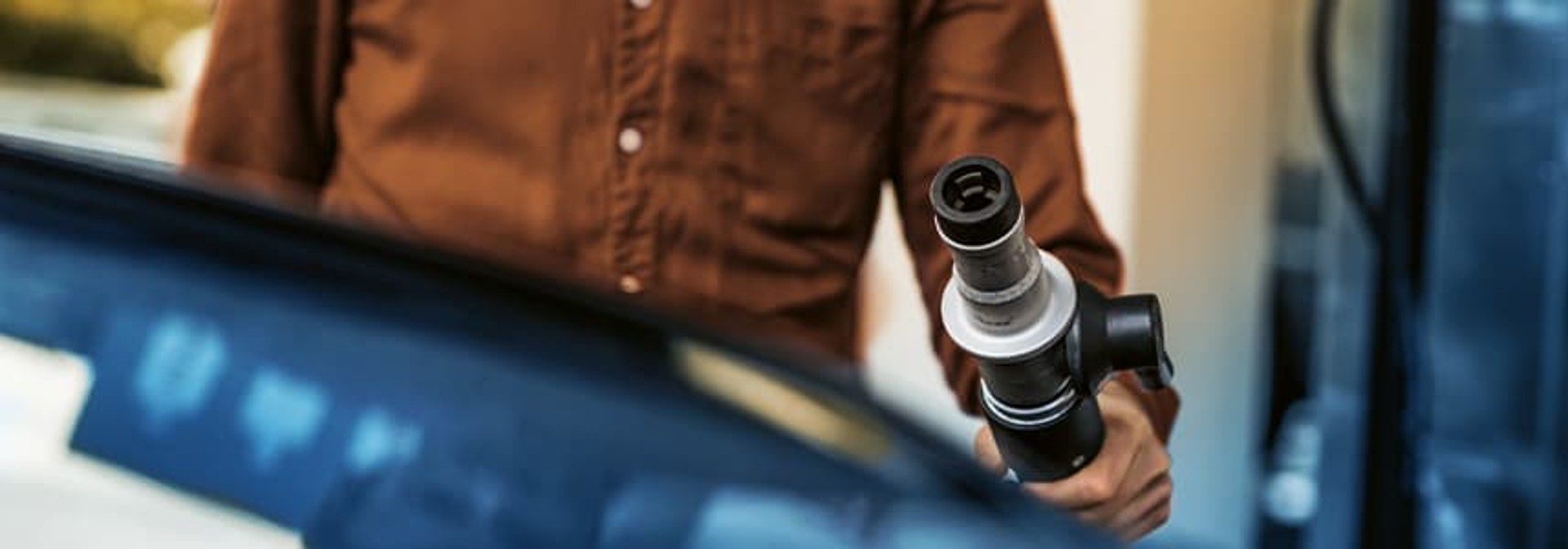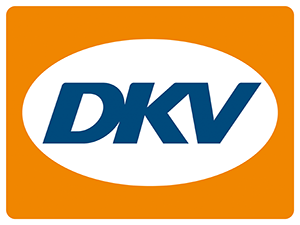breadcrumb
Natural gas and autogas in comparison

Natural gas (LNG, CNG) fuel
LNG (liquified natural gas) is a liquefied gas that is inherently odourless, non-corrosive and non-toxic. It consists of methane, ethane, propane and other hydrocarbons. For this reason, LNG is particularly suitable for long-distance transport.
When refuelling LNG, the laws and regulations governing the refuelling process must be observed. These may be at European or national level and may vary depending on the operator. It is the driver's responsibility to find out in advance.
CNG (compressed natural gas) is a compressed natural gas with an increasing proportion of biogas and a high calorific value.
Are you looking for a filling station near you where you can refuel CNG or LNG as a DKV Mobility customer? DKV Maps shows you the nearest one. There are 700 LNG stations in the EU, with more than 600 in the DKV network. For CNG, 4,200 stations are available in the EU, with more than 2,180 in the DKV network.
Autogas (LPG) fuel
LPG (liquified petroleum gas) is a byproduct of oil refineries. Autogas is the most readily available alternative fuel.
Are you looking for a filling station near you where you can refuel DKV Mobility LPG? DKV Maps shows you the nearest location.There are 48,215 LPG stations in the EU, with more than 17,900 in the DKV network.

Fueling Hydrogen
Hydrogen is a refrigerated fuel and refuelling takes place under high pressure. In the vehicle’s fuel cell, hydrogen combines with oxygen from the atmosphere, which releases energy. All that comes out of the exhaust is water in the form of water vapour.
We plan to make increasing numbers of hydrogen fuel stations available in the DKV Mobility network in the coming years.
Are you looking for a filling station in your area where you can fill up with hydrogen as DKV Mobility? DKV Maps will show you the nearest station in your area. There are 300 hydrogen stations in the EU, with 80 in the DKV network.

Filling up with AdBlue
AdBlue is a liquid that reduces emissions of damaging NOx and soot particles from modern diesel engines. An additional in-built catalytic converter uses AdBlue to change NOx into water vapour and nitrogen. AdBlue helps vehicles meet the emission standards applicable in Europe. AdBlue consists of 67.5 % demineralised water and 32.5% urea. It is non-toxic and almost odourless.
Are you a DKV Mobility customer wanting to find a nearby fuel station to fill your alternative fuel tanks? Then click on the link DKV Maps to go to our station finder. There are 50,000 AdBlue stations in the EU, with more than 46,500 in the DKV network.

HVO refueling - sustainability for your fleet
Hydrogenated vegetable oils (HVO) are made by converting vegetable oils into hydrocarbons using hydrogen in a catalytic reaction. They are produced from vegetable oils such as rapeseed or palm oil as well as from derivatives and wastes.

DKV Mobility App
On the road in Europe? Save time and money with our app. Find the cheapest petrol station or use "App&Go" for digital refueling and charging.
Contact
Would you also like to benefit from the DKV Mobility advantages?
We will be pleased to call you back.
For further information please read our data protection declaration.
* Mandatory field

